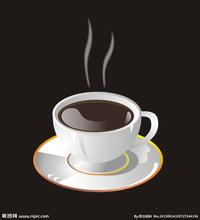Introduction to the characteristics of Yinshan Manor Coffee Flavor and taste varieties with a good balance of mellow and bitter taste
Some small farms of China Coffee Network also grow Blue Mountain Coffee, such as Wallenford Estate, Silver Hill Estate and Atlanta Estate in J.Martinez. Even the largest landowners in the region are small-scale growers by international standards, many of whom are small landowners whose families have been working on the land for two centuries. The coffee industry in Jamaica faces a series of problems, such as the impact of hurricanes, the increase in labor costs and the difficulty of mechanizing terraces. It is difficult for many small estates and farms to rationalize the cultivation of coffee beans grown at low elevations and other areas, which can only be called "Jamaican mountain beans" or "Jamaican waterwashed beans". Compared with the Jamaican Blue Mountains, the flavor is very different, but, these producing areas are twice the size of the real blue mountain area, and the output accounts for 75% of the country's output, so when you buy Jamaican coffee, do not think that you have bought blue mountain coffee.
Because Jamaica Blue Mountain is so famous, there are fake Blue Mountain Coffee on the market, or simply called "Blue Mountain Coffee". It is basically a comprehensive product prepared by the store. there may not be a real Jamaican blue bean in it.
History editor
In 1717 King Louis XV of France ordered the cultivation of coffee in Jamaica, and in the mid-20s, the Governor of Jamaica, Sir Nicholas Lawes, imported Arabica seeds from Martinique and began to plant them in St. Andrew. To this day, St. Andrews is still one of the three major producers of Jamaican Blue Mountain Coffee, with the other two producing areas: Portland (Portland) and St. Thomas (St.Thomas). In eight years, Jamaica exported more than 375 tons of pure coffee. In 1932, coffee production reached its peak and more than 15000 tons of coffee was harvested.
In 1950, the Government of Jamaica established the Jamaica Coffee Industry Committee (the Jamaica Coffee Industry Board), which sets quality standards for Jamaican coffee and oversees the implementation of quality standards to ensure the quality of Jamaican coffee. The Commission awarded special official seals to raw and roasted coffee exported from Jamaica, which is the highest-level national coffee institution in the world. Six marks that can represent the origin of Blue Mountain Coffee are Mafis River Embankment Coffee Factory Mavis Bank Coffee Factory (M.B.C.F), Blue Mountain Coffee Cooperative Factory (M.H.C.C.T.), Portland Blue Mountain Coffee Cooperative Factory (P.X.X.S.H.), Coffee Industry Association (Wallenford), Coffee Industry Association (St. John Peak) and Lanli (J.A.S). Everyone's eyes lit up immediately because it produced the best "Jamaican Blue Mountain Coffee" (Jamaica Blue Mountain) in the world. We absolutely believe that Jamaica Blue Mountain Coffee is the best coffee, its acid, sugar, alcohol and bitterness are well balanced, fragrant and smooth to drink, but its price is so high that although it is worth a try, there is no need to be fascinated by it. Because other selected coffee also has its own characteristics, and the taste is delicious, the price is also reasonable, this is the good coffee in our life.
The earliest "Jamaican Blue Mountain" refers to the coffee produced by "Warren Ford Farm" and "Silver Hill Farm", with the former of the best quality; today, the Jamaican Blue Mountain refers to coffee beans growing in the Blue Mountain area (more than 1000 meters high) east of Kingston, the capital of Jamaica. Now Mawei is the largest manor, its barrel is printed with M.B.C.F, and its products are often found in Taiwan. The quality control of the Blue Mountains in Jamaica is very strict, and the certification work is carried out by the government's "Coffee Industry Committee".

Important Notice :
前街咖啡 FrontStreet Coffee has moved to new addredd:
FrontStreet Coffee Address: 315,Donghua East Road,GuangZhou
Tel:020 38364473
- Prev

Introduction to the characteristics of coffee flavor and taste varieties in Hassanda Coffee Garden with the best quality
However, in the early 1990s, the Gonzalez family bought the Hasunda Coffee Garden. The local microclimate caused by the Humboldt current (Humboldt Current), strong equatorial sunlight and sharp temperature changes (43 ℃ at sea level and 10: 16 ℃ at 275m above sea level) provide a unique advantage, prompting the Gonzalez family
- Next

Introduction to the perfect balance of sweet, sour and bitter taste of Cliff Manor Coffee
China Coffee Network's historic Northcliff Manor Guesthouse Hotel, located in Northcliff, is located in a garden covering an area of 4000 square meters, decorated in an ancient South African style, with seasonal outdoor swimming pools, tennis courts and hot tubs. The rooms of the Northcliff Manor Guesthouse Hotel are uniquely decorated with luxurious
Related
- Does Rose Summer choose Blue, Green or Red? Detailed explanation of Rose Summer Coffee plots and Classification in Panamanian Jade Manor
- What is the difference between the origin, producing area, processing plant, cooperative and manor of coffee beans?
- How fine does the espresso powder fit? how to grind the espresso?
- Sca coffee roasting degree color card coffee roasting degree 8 roasting color values what do you mean?
- The practice of lattes: how to make lattes at home
- Introduction to Indonesian Fine Coffee beans-- Java Coffee producing area of Indonesian Arabica Coffee
- How much will the flavor of light and medium roasted rose summer be expressed? What baking level is rose summer suitable for?
- Introduction to the characteristics of washing, sun-drying or wet-planing coffee commonly used in Mantenin, Indonesia
- Price characteristics of Arabica Coffee Bean Starbucks introduction to Manning Coffee Bean Taste producing area Variety Manor
- What is the authentic Yega flavor? What are the flavor characteristics of the really excellent Yejasuffi coffee beans?

